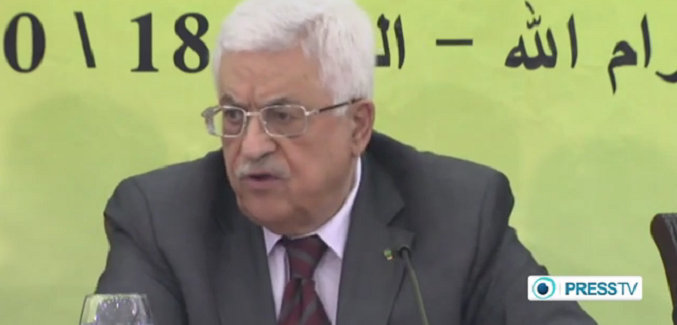The Palestinians will submit a resolution within weeks to the United Nations Security Council (UNSC) demanding that Israel be made to withdraw from what Ramallah considers to be its territory – despite explicit American calls for Ramallah to put off the gambit – according to an announcement made earlier this week by Palestine Liberation Organization Secretary General Yasser Abed Rabbo:
“The political council of the PLO decided during its meeting last night… to go to the UN Security Council with the aim of getting a resolution passed to end the Israeli occupation in the Palestinian territories… by the end of this month,” he said.
Voting could take place “two weeks or more after the request is presented,” Abed Rabbo told a news conference in the West Bank city of Ramallah. “There is no excuse for a delay.”
Secretary of State John Kerry had met with Palestinian Authority (PA) President Mahmoud Abbas earlier in the week and asked Abbas to put off the move, but was rebuffed. The Palestinians subsequently leaked that Abbas threatened Kerry that he would pursue further international action, including a campaign of legal warfare against Israel that would see Jerusalem dragged into the International Criminal Court (ICC), if the U.S. exercised its veto against the Palestinian resolution.
The move to acquire statehood outside of negotiations with Israel violates core Palestinian commitments made under the Oslo Accords, which among other things forbid either party from taking “any step that will change the status of the West Bank and the Gaza Strip pending the outcome of the permanent status negotiations.” The Israelis secured those assurances at the expense of functionally irreversible territorial concessions, and backsliding – which erodes the confidence Jerusalem requires to trade tangible land for intangible promises – has long been seen as potentially devastating to future diplomacy.
U.S. officials have been adamant that Palestinian unilateralism strikes at core American interests in the region, and a Heritage Foundation report co-authored by Brett D. Schaefer and James Phillips a few years ago identified such moves as “threaten[ing] United States and Israeli interests” and “undermin[ing] all internationally accepted frameworks for peace.” President Barack Obama has been explicit in expressing his opposition to Ramallah’s U.N. gambits. The Palestinians have nonetheless made several moves to upgrade their status at Turtle Bay in recent years, all outside the peace process and all in the face of American opposition.
Washington has responded by threatening and in some cases implementing sanctions against both Ramallah and the institutions that they leveraged, per black-letter congressional legislation that cuts off funds to UN bodies that give the Palestinians membership.
In the fall of 2011 Ramallah sought and acquired UNESCO membership despite calls to put aside its application from the White House and the State Department, triggering immediate aid cut off that crippled the body. The next year the Palestinians secured an upgrade to non-member statehood, again over strong and repeated American opposition, and again triggering an intense congressional backlash. Last April Ramallah disrupted efforts to extend nine months of U.S.-backed peace talks by submitting membership applications to a range of United Nations bodies as the “State of Palestine.”
Brushing aside harsh condemnations from U.S. lawmakers, the Palestinians more or less accurately boasted that administration figures in the United States would prevent any Congressional retaliation.
The successful domestic pushback to congressional anger occurred within a political environment – strong approval for the administration’s foreign policy, a Democratic-led Senate, and so on – that is likely to be different than those in 2015.
[Photo: PressTV News Videos / YouTube]




